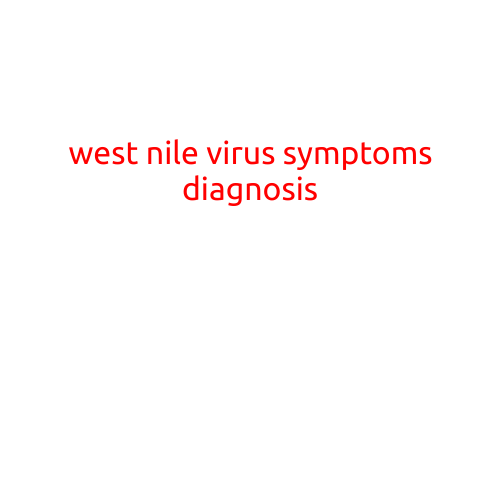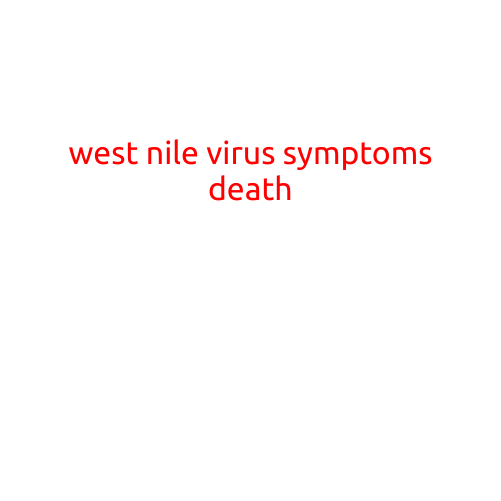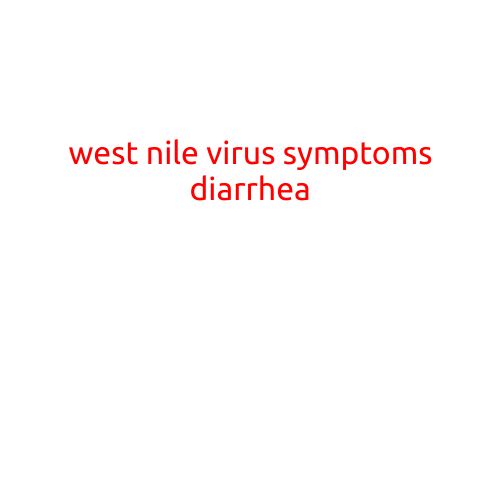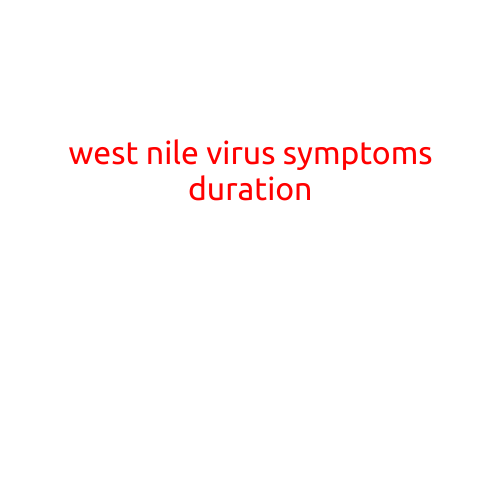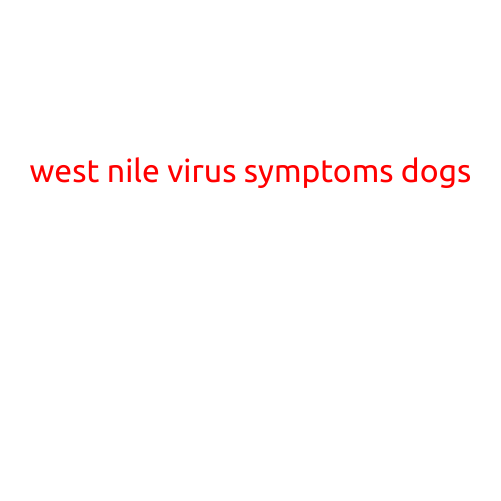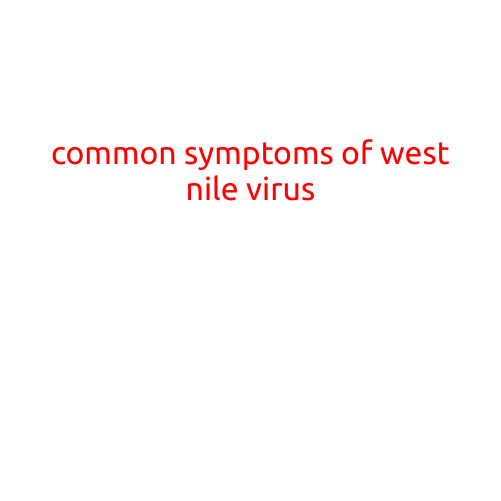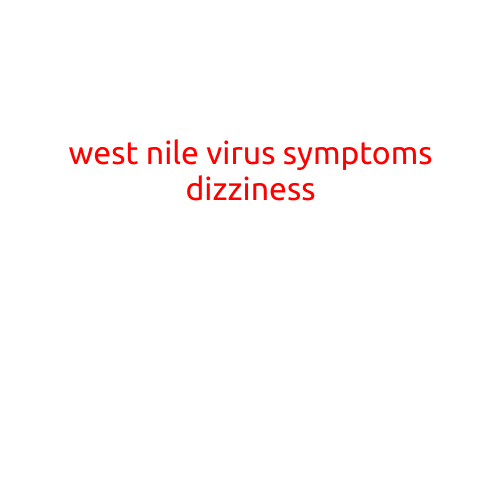
West Nile Virus Symptoms: Dizziness and More
West Nile virus (WNV) is a potentially serious illness caused by the West Nile virus, a type of flavivirus that is transmitted to humans through the bite of an infected mosquito. According to the Centers for Disease Control and Prevention (CDC), WNV is a leading cause of arboviral disease in the United States, with most cases reported in the summer and early fall months.
Dizziness is a common symptom of West Nile virus infection, and it can be a subtle indicator that something is wrong. However, dizziness is just one of many symptoms associated with WNV infection. In this article, we’ll explore the possible symptoms of West Nile virus, including dizziness, and provide information on how to recognize, prevent, and manage the disease.
Symptoms of West Nile Virus
The severity of WNV symptoms can vary widely, ranging from mild to severe. In most cases, WNV infection causes a mild illness, known as West Nile fever, which is characterized by:
- Dizziness
- Headache
- Muscle weakness
- Fever
- Fatigue
- Rash
- Sore throat
- Swollen lymph nodes
- Elevated liver enzymes
In rare cases, WNV infection can progress to a more severe form of the disease, known as West Nile neuroinvasive disease, which can cause:
- Fever
- Headache
- Confusion
- Loss of consciousness
- Muscle weakness
- Paralysis or seizures
- Inflammation of the brain (encephalitis)
Recognizing West Nile Virus Symptoms
If you experience any of the following symptoms, seek medical attention immediately:
- Severe headache or confusion
- Vision loss or double vision
- Weakness or paralysis
- Seizures or muscle spasms
- Difficulty speaking or swallowing
- Fever of 103°F (39.4°C) or higher
Preventing West Nile Virus
While there is no vaccine available to prevent WNV infection, there are several steps you can take to reduce your risk of contracting the disease:
- Use insect repellent: Apply insect repellents containing DEET, picaridin, or oil of lemon eucalyptus to exposed skin and clothing to prevent mosquito bites.
- Wear protective clothing: Wear long-sleeved shirts, long pants, and socks to cover exposed skin.
- Avoid peak mosquito hours: Mosquitoes are most active during dawn and dusk, so try to stay indoors during these times.
- Eliminate standing water: Get rid of any sources of standing water around your home, such as flowerpots, bird baths, and pet water dishes.
Managing West Nile Virus Symptoms
If you suspect you have West Nile virus or have been diagnosed with the disease, it’s essential to seek medical attention. Your healthcare provider may recommend the following treatments:
- Rest: Get plenty of rest to help your body fight off the infection.
- Pain relief: Over-the-counter pain relievers, such as acetaminophen or ibuprofen, can help alleviate headaches, fever, and body aches.
- Antihistamines: If you experience itching or hives, your doctor may prescribe antihistamines to relieve symptoms.
- Supportive care: Healthcare providers may provide supportive care, such as intravenous fluids, to help manage symptoms and prevent complications.
Conclusion
West Nile virus is a serious illness that can cause a range of symptoms, including dizziness, headache, fever, and muscle weakness. While dizziness is a common symptom of WNV infection, it’s essential to recognize the other symptoms and seek medical attention if you experience any of the severe symptoms mentioned above. By taking steps to prevent mosquito bites and managing symptoms if you are diagnosed with WNV, you can reduce the risk of complications and improve your chances of a full recovery.
